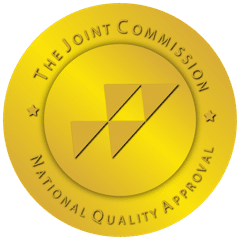Inpatient drug treatment programs play a crucial role in helping individuals overcome addiction and achieve lasting recovery. These programs provide a structured and supportive environment where individuals can focus on their healing journey without the distractions and triggers of the outside world. One of the key components of inpatient drug treatment is therapy, which plays a vital role in addressing the underlying causes of addiction, developing coping mechanisms, and promoting long-term sobriety.
The Importance of Therapy in Inpatient Drug Treatment
Therapy forms the foundation of Inpatient drug treatment in Orange County, as it helps individuals gain a deeper understanding of their addiction, develop healthier coping strategies, and learn essential life skills necessary for maintaining sobriety. By addressing the underlying psychological, emotional, and behavioral aspects of addiction, therapy plays a crucial role in the recovery process.
Types of Therapy and Their Advantages in Drug Treatment
Each type of therapy used in drug treatment offers unique advantages that contribute to an individual’s recovery journey. Let’s explore some of the key therapy types and their benefits:
Cognitive-Behavioral Therapy (CBT)
Cognitive-Behavioral Therapy is a widely used therapy approach in drug treatment programs. It focuses on helping individuals identify and change negative thought patterns and behaviors that contribute to addiction. By challenging irrational beliefs and replacing them with healthier ones, CBT helps individuals develop more positive coping mechanisms and build resilience. Some of the advantages of CBT in drug treatment include:
- Identifying and challenging negative thinking patterns that contribute to addiction
- Learning healthy coping mechanisms to manage stress and triggers
- Developing problem-solving skills to overcome obstacles in recovery
- Building self-esteem and self-confidence
- Preventing relapse by recognizing and addressing potential triggers
Dialectical Behavior Therapy (DBT)
Dialectical Behavior Therapy (DBT) combines elements of CBT with mindfulness practices. It focuses on helping individuals regulate their emotions, improve interpersonal skills, and manage stress effectively. DBT is particularly effective for individuals struggling with co-occurring mental health disorders and addiction. Some advantages of DBT in drug treatment include:
- Learning mindfulness techniques to manage cravings and urges
- Improving emotional regulation and distress tolerance
- Enhancing interpersonal effectiveness and communication skills
- Reducing self-destructive behaviors through self-acceptance
- Developing a sense of purpose and meaning in life

Group Therapy
Group therapy is a valuable component of inpatient drug treatment programs. It provides individuals with the opportunity to connect with others who are going through similar challenges, fostering a sense of community, support, and accountability. Some advantages of group therapy in drug treatment include:
- Sharing experiences, insights, and coping strategies
- Gaining perspective and support from peers
- Developing empathy and social skills
- Building a sense of belonging and connection
- Receiving feedback and encouragement from others
Family Therapy
Family therapy involves the participation of family members in the treatment process. It recognizes the importance of family dynamics in addiction and aims to repair relationships, improve communication, and create a supportive home environment for long-term recovery. Some advantages of family therapy in drug treatment include:
- Addressing family conflicts and dysfunction that contribute to addiction
- Improving communication and problem-solving skills within the family
- Rebuilding trust and creating a supportive network
- Enhancing family understanding of addiction and recovery
- Providing a platform for healing and reconciliation
Experiential Therapy
Experiential therapy utilizes activities such as art, music, and outdoor adventures to help individuals express their emotions, build self-esteem, and develop healthy coping mechanisms. It provides a hands-on approach to therapy, allowing individuals to explore their creativity and engage in meaningful experiences. Some advantages of experiential therapy in drug treatment include:
- Encouraging self-expression and creativity
- Building self-esteem and self-confidence
- Developing problem-solving and decision-making skills
- Providing a healthy outlet for emotions
- Enhancing overall well-being and self-discovery

Therapeutic Approaches and Their Significance in Drug Rehab
At Lift Off Recovery, therapeutic approaches used in drug rehab programs are designed to address the complex nature of addiction and promote lasting recovery. These approaches take into account the individual’s unique needs, preferences, and circumstances, ensuring a personalized and effective treatment experience.
Individual Therapy
Individual therapy involves one-on-one sessions between the individual and a therapist. It provides a confidential and safe space for individuals to explore their thoughts, emotions, and experiences related to addiction. Individual therapy allows for a deep dive into the underlying causes of addiction and helps individuals develop personalized strategies for recovery.
Holistic Therapies
Holistic therapies take a comprehensive approach to healing, addressing the physical, mental, emotional, and spiritual aspects of an individual. These therapies may include yoga, meditation, acupuncture, massage therapy, and other complementary practices. Holistic therapies promote overall well-being and help individuals develop a sense of balance and connection.
Aftercare and Continuing Therapy
Aftercare and continuing therapy are crucial components of the recovery process. These services provide ongoing support and guidance to individuals as they transition back into their daily lives. Aftercare may include outpatient therapy, support groups, relapse prevention programs, and other resources aimed at maintaining long-term sobriety.
Discover The Role of Therapy in Inpatient Drug Treatment with Lift Off Recovery
Inpatient drug treatment programs in Brea, California, offer individuals a transformative journey towards lasting recovery. Therapy plays a vital role in these programs, helping individuals address the underlying causes of addiction, develop healthier coping mechanisms, and build essential life skills. By understanding the role of therapy in inpatient care, exploring therapy types and benefits in rehab, and recognizing the significance of therapeutic approaches, individuals can embark on a path of healing and achieve long-term sobriety.
At Lift Off Recovery, we are dedicated to providing comprehensive and personalized inpatient drug treatment that incorporates various therapy types to support individuals on their journey to recovery. Contact us today to learn more about our tailored treatment programs and start your path towards lasting sobriety.

FAQ 1: Why is therapy considered a crucial component of inpatient drug treatment programs?
Therapy in inpatient drug treatment programs helps individuals address the underlying causes of addiction, develop healthier coping mechanisms, and learn essential life skills necessary for maintaining sobriety. It forms the foundation of these programs by providing individuals with the tools and skills they need to overcome addiction and prevent relapse.
FAQ 2: What are some common types of therapy used in inpatient drug treatment, and how do they benefit individuals in recovery?
Common types of therapy used in inpatient drug treatment include Cognitive-Behavioral Therapy (CBT), Dialectical Behavior Therapy (DBT), group therapy, family therapy, and experiential therapy. Each type offers unique benefits, such as identifying and changing negative thought patterns (CBT), improving emotional regulation (DBT), fostering a sense of community (group therapy), repairing relationships (family therapy), and promoting self-expression (experiential therapy).
FAQ 3: How do therapy types like CBT and DBT help individuals in inpatient drug treatment programs?
Therapy types like Cognitive-Behavioral Therapy (CBT) and Dialectical Behavior Therapy (DBT) help individuals in inpatient drug treatment by identifying and changing negative thought patterns and behaviors, improving emotional regulation and distress tolerance, enhancing interpersonal skills, and reducing self-destructive behaviors. These therapies provide practical tools and strategies for coping with addiction and managing life’s challenges.
FAQ 4: What role does family therapy play in inpatient drug treatment, and how does it benefit both individuals and their loved ones?
Family therapy involves the participation of family members in the treatment process and aims to repair relationships, improve communication, and create a supportive home environment for long-term recovery. It benefits individuals by addressing family conflicts and dysfunction that contribute to addiction and provides a platform for healing and reconciliation for both individuals and their loved ones.
FAQ 5: How do holistic therapies contribute to the overall well-being of individuals in inpatient drug treatment programs?
Holistic therapies take a comprehensive approach to healing, addressing the physical, mental, emotional, and spiritual aspects of an individual. These therapies, such as yoga, meditation, acupuncture, and massage therapy, promote overall well-being, balance, and connection. They provide individuals with additional tools for coping with addiction and maintaining sobriety long-term.
FAQ 6: What is the significance of aftercare and continuing therapy in the recovery process following inpatient drug treatment?
Aftercare and continuing therapy are crucial components of the recovery process as they provide ongoing support and guidance to individuals as they transition back into their daily lives. These services, which may include outpatient therapy, support groups, relapse prevention programs, and other resources, help individuals maintain the skills and strategies learned during inpatient treatment and navigate the challenges of sobriety in the long term.
FAQ 7: How do inpatient drug treatment programs in Brea, California, incorporate therapy into their treatment approach?
Inpatient drug treatment programs in Brea, California, incorporate therapy into their treatment approach by offering various types of therapy tailored to meet the unique needs of each individual. These programs provide a structured and supportive environment where therapy sessions, including individual therapy, group therapy, family therapy, and holistic therapies, are integrated into the daily schedule to address the physical, emotional, and psychological aspects of addiction.
FAQ 8: What role does therapy play in addressing co-occurring mental health disorders during inpatient drug treatment?
Therapy plays a crucial role in addressing co-occurring mental health disorders during inpatient drug treatment by providing individuals with the tools and skills they need to manage their symptoms effectively. Therapists utilize evidence-based approaches to treat both addiction and mental health issues concurrently, helping individuals achieve holistic recovery and better overall well-being.
FAQ 9: How can individuals benefit from therapy in inpatient drug treatment programs even after completing their treatment program?
Individuals can benefit from therapy in inpatient drug treatment programs even after completing their treatment program by continuing to practice the skills and strategies learned during therapy sessions. Many programs offer ongoing support and aftercare services, including outpatient therapy and support groups, to help individuals maintain sobriety, prevent relapse, and address any new challenges that may arise in their recovery journey.
FAQ 10: What steps can individuals take to ensure they make the most of therapy during their inpatient drug treatment program?
To make the most of therapy during their inpatient drug treatment program, individuals can take proactive steps such as actively participating in therapy sessions, being open and honest with their therapist, practicing the skills and strategies learned during therapy in their daily lives, seeking support from peers and loved ones, and staying committed to their recovery journey.










